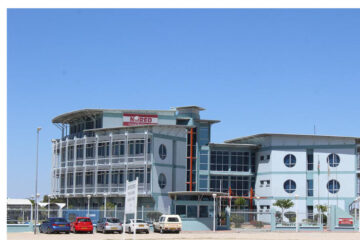Niël Terblanché
Only through bold investments and sustained commitment can Africa overcome the persistent challenge of food insecurity and malnutrition.
According to the latest State of Food Security and Nutrition in the World (SOFI) Report, 298 million Africans—equivalent to one in five people—faced hunger in 2023.
Additional data from 2022 painted an equally concerning picture, with 924.8 million Africans unable to afford a healthy diet, 63.1 million young children suffering from stunting, and 10.2 million children classified as overweight.
The burden of malnutrition extends to adults, with 123.9 million classified as obese and 122.7 million women of reproductive age affected by anaemia.
The Director-General of the Food and Agriculture Organization of the United Nations (FAO), Qu Dongyu, urged African leaders to make bold investments to combat hunger and malnutrition across the continent.
Speaking at a High-Level Side Event during the 38th African Union (AU) Summit in Addis Ababa, Qu warned that Africa continues to face alarming levels of food insecurity and malnutrition despite ongoing efforts to improve nutrition policies.
Qu was invited to address the event, hosted by His Majesty King Letsie III of Lesotho, FAO Goodwill Ambassador for Nutrition.
In his speech, Qu reiterated the pressing need for stronger financial and political commitments to improve access to healthy diets and tackle malnutrition.
“The theme of the meeting tells us that despite the gains we have made in making nutrition a key policy agenda in Africa, a lot more needs to be done to translate these policies and commitments into concrete actions to ensure healthy diets and adequate nutrition for every individual on the continent, leaving no one behind,” Qu said.
Qu pointed out that while there are many cost-effective interventions to address malnutrition, they require integrated action across multiple sectors.
He stressed that current food security and nutrition financing remains inadequate and called for increased investment in sustainable agrifood systems.
“The upcoming Nutrition for Growth Summit in Paris will be critical to gaining momentum and gathering both financial and political commitments to accelerate nutrition actions,” he said.
Qu welcomed the support of the African Development Bank, particularly its nutrition-smart investment portfolios in agriculture and health.
He also praised African leaders for adopting the new Comprehensive Africa Agriculture Development Program (CAADP) Strategy and its 10-Year Action Plan, which aims to drive major investments in agriculture and food systems transformation.
“FAO is committed to continue playing a leadership role in accelerating policies and actions across agrifood systems to ensure healthy diets for all,” Qu affirmed.
He reiterated FAO’s dedication to working alongside the AU in achieving the goals outlined in the Africa Agenda 2063, which envisions a more food-secure and resilient continent.
The summit served as a platform to reinforce the urgency of addressing malnutrition in Africa.




